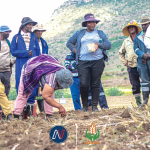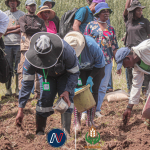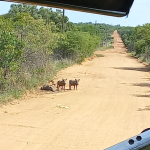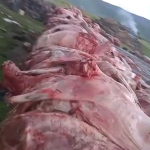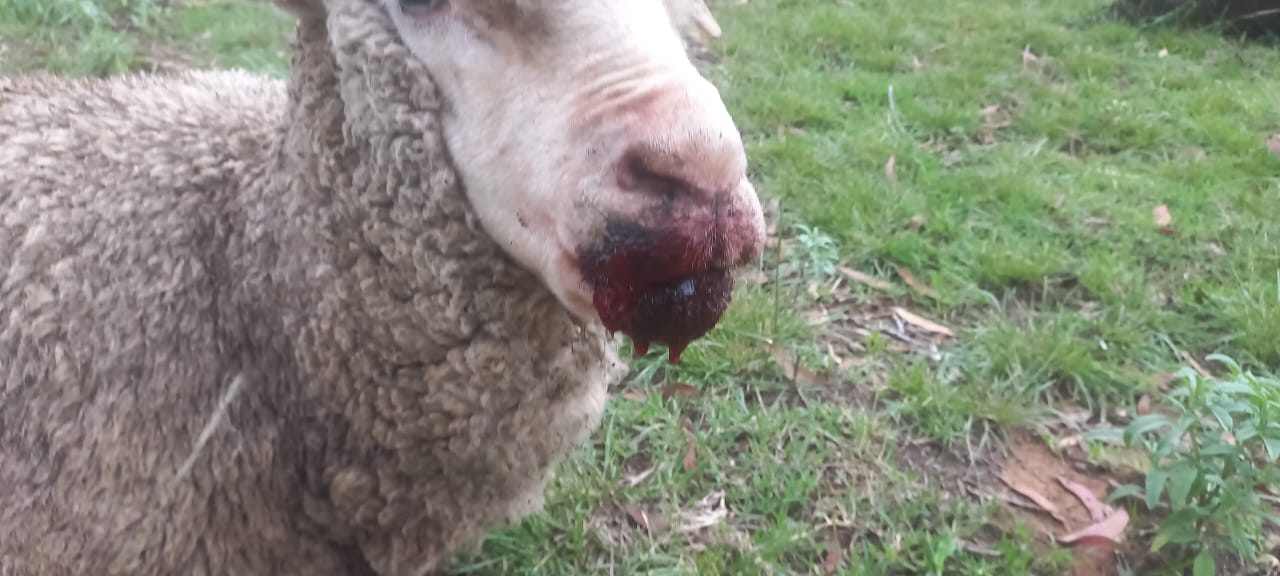Farmers across the country’s highlands are sounding the alarm over a surge in Bluetongue disease, known locally as Boloutomo, which is spreading rapidly among livestock in Quthing, Mohale’s Hoek, and Maseru.
Reports from affected farmers indicate that the viral infection, which primarily targets sheep, is spreading at an alarming rate.
Richard Bullet, a farmer from Quthing, said the situation is worsening in villages such as Qomoqomong, Tsatsane, and Ha Mafora.
“The disease is spreading like wildfire. Every day, we see more sick animals, and it’s devastating a large parts of the district,” he told Seahlolo Newspaper.
Similar concerns have been raised by Mokhothu Mokhothu from Ha Tlali in Maseru, Lebusa Letšoara from Botha-Bothe and Mothusi Kompi from Phamong in Mohale’s Hoek, all livestock farmers who fear a full-scale outbreak in their areas if immediate interventions are not made.
Despite these reports, Lereko Masupha, the Public Relations Officer at the Ministry of Agriculture, Food Security, and Nutrition, stated that the ministry has not yet received official complaints about an outbreak.
He urged affected farmers to seek assistance at their nearest agriculture resource centres.
Dr. Tabitha Masentle Seeiso from the Department of Livestock Services also stated that while no official reports have been received, farmers should take immediate preventative action.
“This disease is a serious public health concern, and necessary precautions should be taken before it spreads further. During last year’s outbreak, we educated farmers on the importance of vaccination and prevention strategies. Farmers should ensure their animals receive the necessary vaccines, which are available over the counter across the country. We will consult with our district offices to assess the severity of the situation and determine the next steps,” she explained.
The last significant Bluetongue outbreak was recorded in February last year, prompting a warning from the Ministry of Agriculture’s Livestock Department.
The disease is primarily transmitted by mosquitoes, which thrive in warm, humid conditions following heavy rainfall.
Bluetongue symptoms include swelling of the head, high fever, reddening of the eyes and mouth, and loss of appetite. In severe cases, sheep may experience weakness, depression, weight loss, and death. The disease gets its name from the bluish discoloration of the mouth, caused by restricted blood flow.
Masupha emphasised the importance of early detection and swift action.
“Farmers must notify the ministry as soon as they observe these symptoms in their animal so that necessary measures can be taken swiftly,” he said.
The alarm over Bluetongue comes at a critical time when the ministry is battling with an African Army Worm which threaten Crops.
The country is already grappling with a food security crisis with more than 700,000 Basotho in urgent need of food, yet the Ministry of Agriculture’s budget remains unchanged despite the dual threats of livestock and crop disease.
Farmers fear that without swift intervention, the combined impact of Bluetongue and the African Armyworm will further cripple food production, worsening an already fragile situation.



